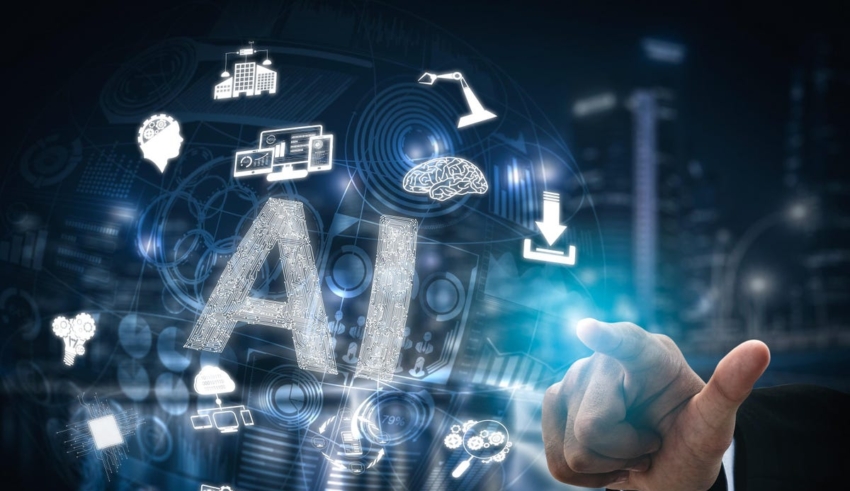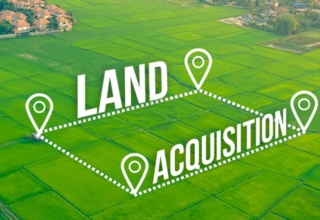
Experts predict that by 2030, AI will become a digital partner to humanity, able to diagnose potentially fatal diseases at an early stage, anticipate weather conditions over a wide area over several months, and so on.
What does that mean for your business? Several beneficial breakthroughs have emerged thanks to advancements in artificial intelligence, which companies can implement in the workplace to facilitate various tasks, such as the automation of routine tasks and data consolidation. The changes brought on by AI are now so prevalent that they have a significant impact on user experience and how people engage with products and technologies.
According to a report by Business News Daily, AI is expected to take digital technology beyond the confines of the two-dimensional screen and bring it into the three-dimensional physical environment surrounding an individual.
Learn more about how AI is expected to impact businesses in the future:
Table of Contents
Predictive Analysis
The financial sector has many opportunities for using AI and ML algorithms. These algorithms are self-learning and can benefit the user and the financial company if given the correct data.
Making data-based decisions regarding investments and when to purchase and sell stocks is another application for trading AI and ML. Because machines can quickly process a large quantity of data, they are excellent at forecasting future stock behavior. AI can also spot trends in historical data streams and predict whether such patterns will recur.
Additionally, AI can track and comprehend market drivers using a supercomputer and sophisticated mathematics, which enables people to make wiser trade and investing decisions on trading platforms such as Finixio AI.
Drug Development and Clinical Trials
Clinical trial processes, including patient recruiting, adherence tracking, and data collecting, could be affected by AI. This is good news for pharmaceutical companies, as developing a new drug is a slow and expensive process. A study estimated that getting a new drug to market costs an average of $1.3 billion. With the help of AI, it is now possible to computationally analyze massive data sets and identify complicated links and patterns.
Startups and major corporations are working hard to create clinical trial solutions, including IoT for remote monitoring, machine learning for processing electronic health records (EHR), and AI-based cybersecurity for data security. By enhancing human intelligence, AI is poised to revolutionize scientific research, ushering in a new era of scientific discovery in the years to come.
Marketing Automation
In digital marketing, various AI-powered solutions are used to forecast customer behavior, ad placement, content production, and other factors. More research and innovation in AI will enable marketers to connect with customers based on their interests and demographics more than ever. The technology will also make dividing clients into distinct groups easier, allowing for more precise segmentation and marketing content.
Furthermore, AI can better track the types of content that customers find interesting. This data can help businesses provide highly personalized and beneficial customer experiences, potentially increasing conversion rates. Marketers can use AI to track which emails and texts are read, deleted, and shared. It also allows for A/B testing, in which two different subject lines are distributed and tracked to see which is more effective at getting the audience to read the email.
Sales and Customer Interaction
AI chatbots allow individualized customer support, instantly assisting clients in locating solutions to typical problems or finding answers to regularly asked queries. These virtual assistants are evolving and becoming more capable of fostering more profound connections with clients in an economical, practical, and dependable way.
Using chatbots to engage clients during the sales process is becoming more common. AI can make the sales process smarter, from advertisements to analytics to content. Accordingly, highly developed AI can assess customer and prospect data, identify the prospects who are most likely to convert, suggest the crucial sales activities to be taken, forecast outcomes, optimize pricing, and more.
Advancement In Automation
Some people associate AI with robots taking over the jobs of humans. However, research has found that though theoretically capable of replacing human workers, artificial intelligence is still far from being on par with human intelligence.
Experts posit that if there is an investment in all sectors—anywhere that focuses on training and upskilling workers—AI may increase employment, not decrease it. The question should be “humans and computers” involved in complex systems that advance industry and prosperity, not “people or computers.” According to a report by the American University, Washington, AI will enhance production levels, specialization in work tasks, and the value of “human abilities” like creativity, problem-solving, and quantitative skills, similar to previous automation advancements.
Digitized Manufacturing
AI in manufacturing entails using data to make actionable decisions faster and more accurately than a human can. This can help the industry digitally transform into a more effective, skilled, and productive version of itself. It can improve record-keeping, inventory management, and supply chain flow.
Experts expect AI-powered robots to assist humans in a limited range of tasks, such as assembly and stacking, while predictive analysis sensors keep equipment running smoothly.
Potential benefits include increased efficiencies, lower costs, improved quality, and reduced downtime. This technology is not just for large corporations. AI solutions with high value and low cost are more accessible than many smaller manufacturers realize.
Talent Acquisition
AI can assist in transforming the process of identifying and developing required talent. AI can help businesses identify external prospects based on data generated by detailed questionnaires, regardless of whether those individuals have applied for a position. It can also identify current employees who are qualified for new jobs.
AI is causing massive disruption in employee recruitment – digital interviewing, predictive analytics, and gamification, for example, have emerged or are emerging.” And they are fundamentally altering the workplace. An AI-enhanced approach, for example, can assist a transportation company in identifying candidates who are most likely to drive safely and efficiently. It can also help a company find employees who are less likely to pose a cyber risk.
In Conclusion
In almost every sector, artificial intelligence influences how people will live in the future. It is the primary force behind developing technologies like big data, robotics, and the Internet of Things. And it will continue to do so for the foreseeable future.
















